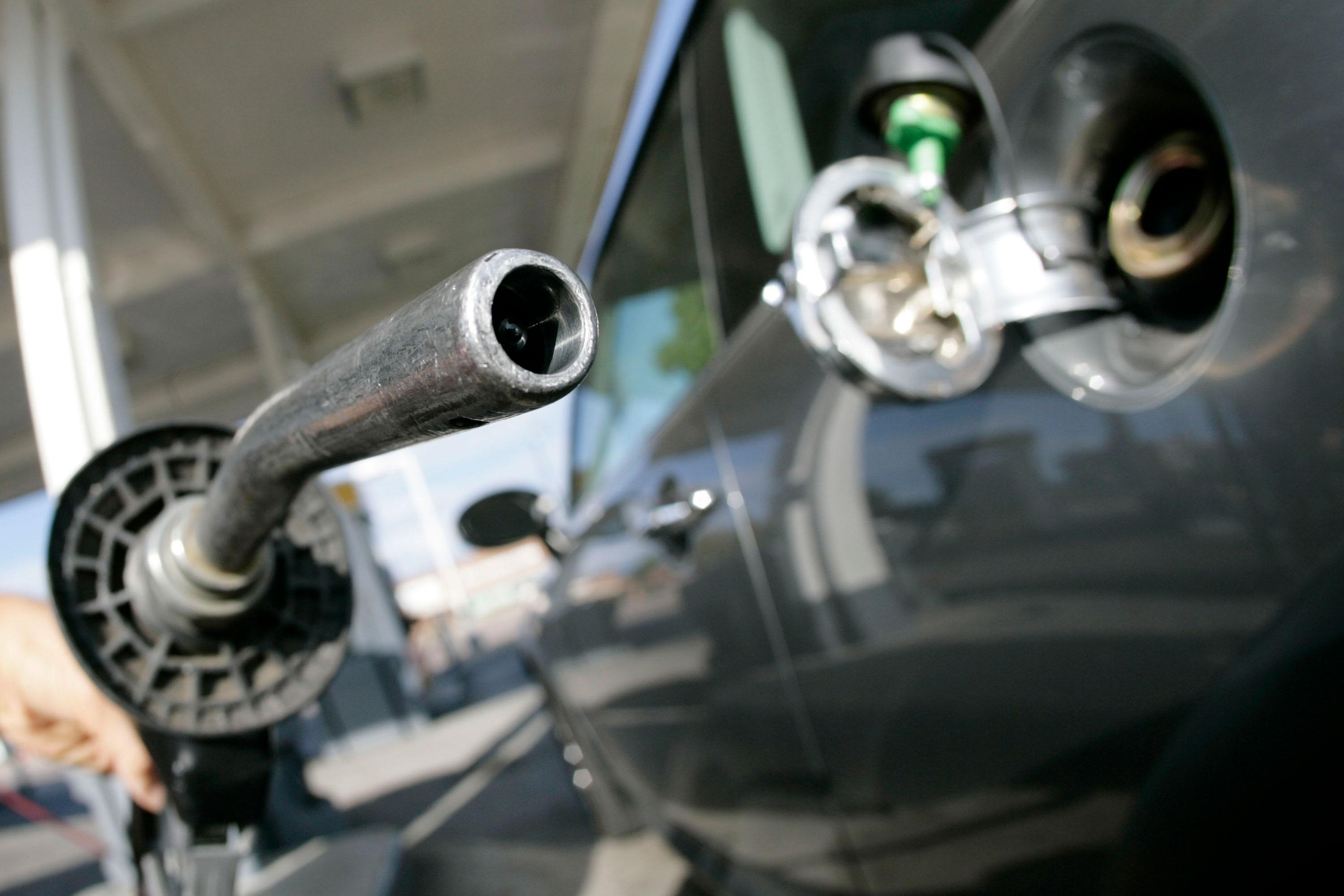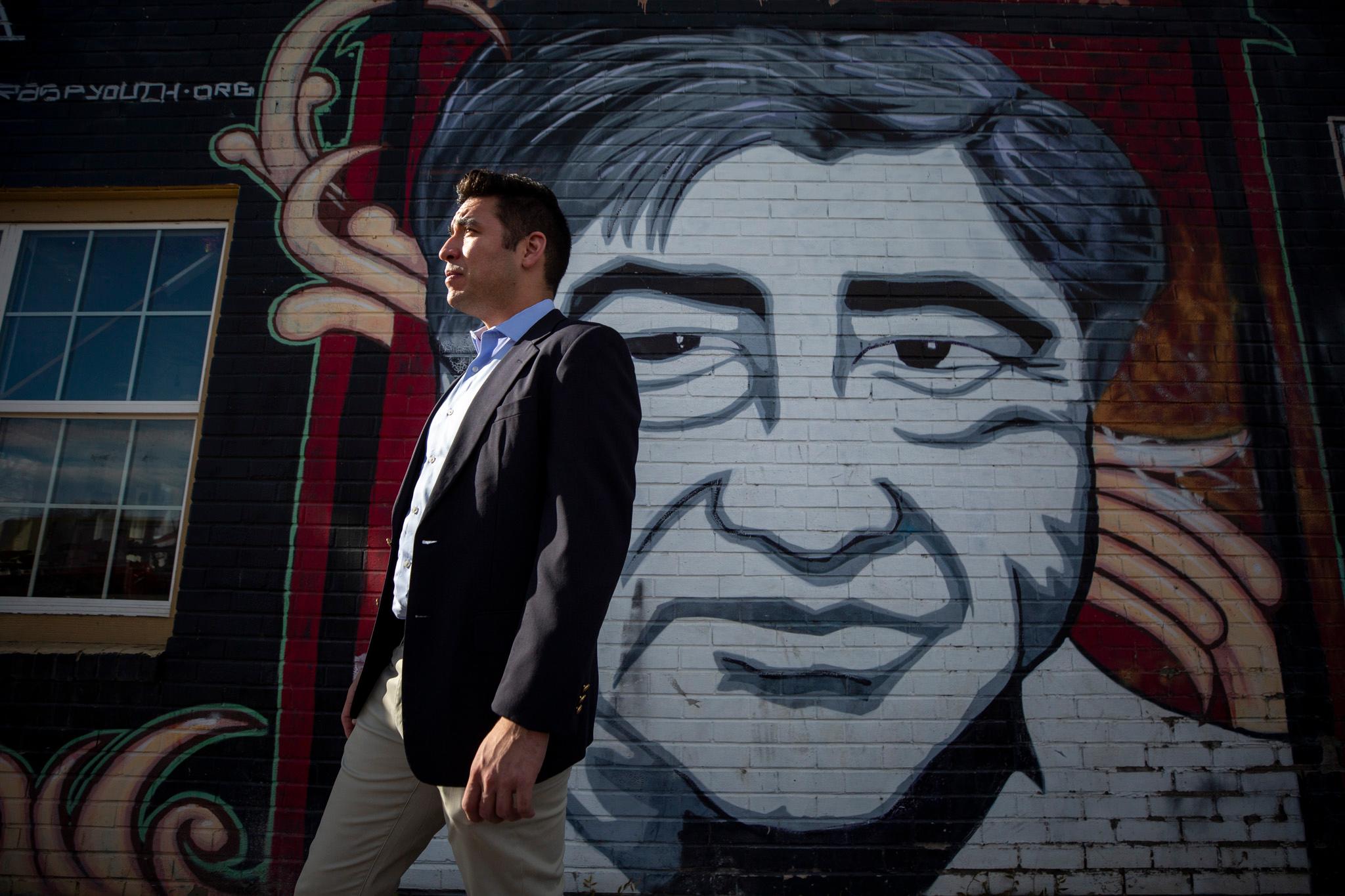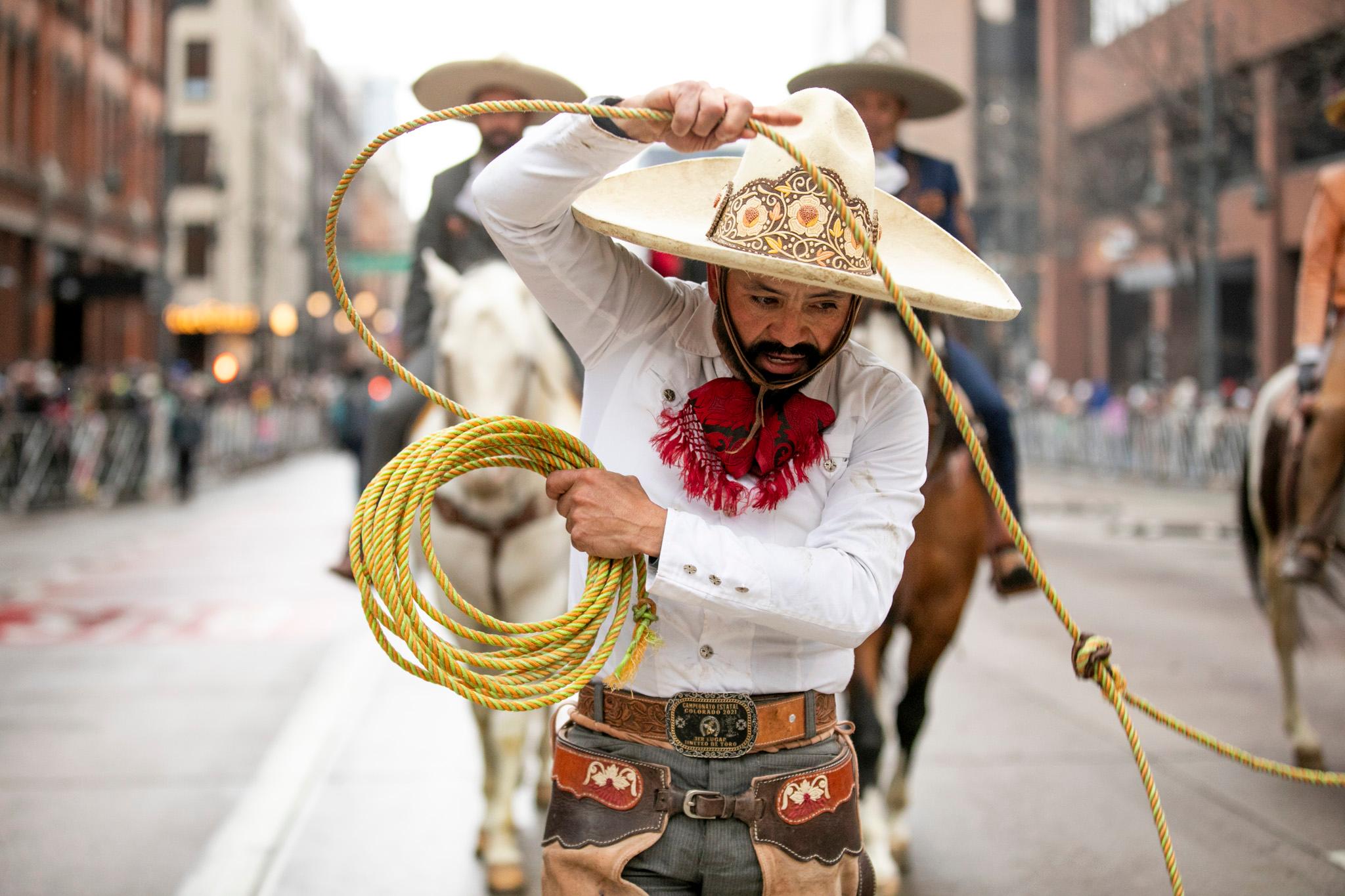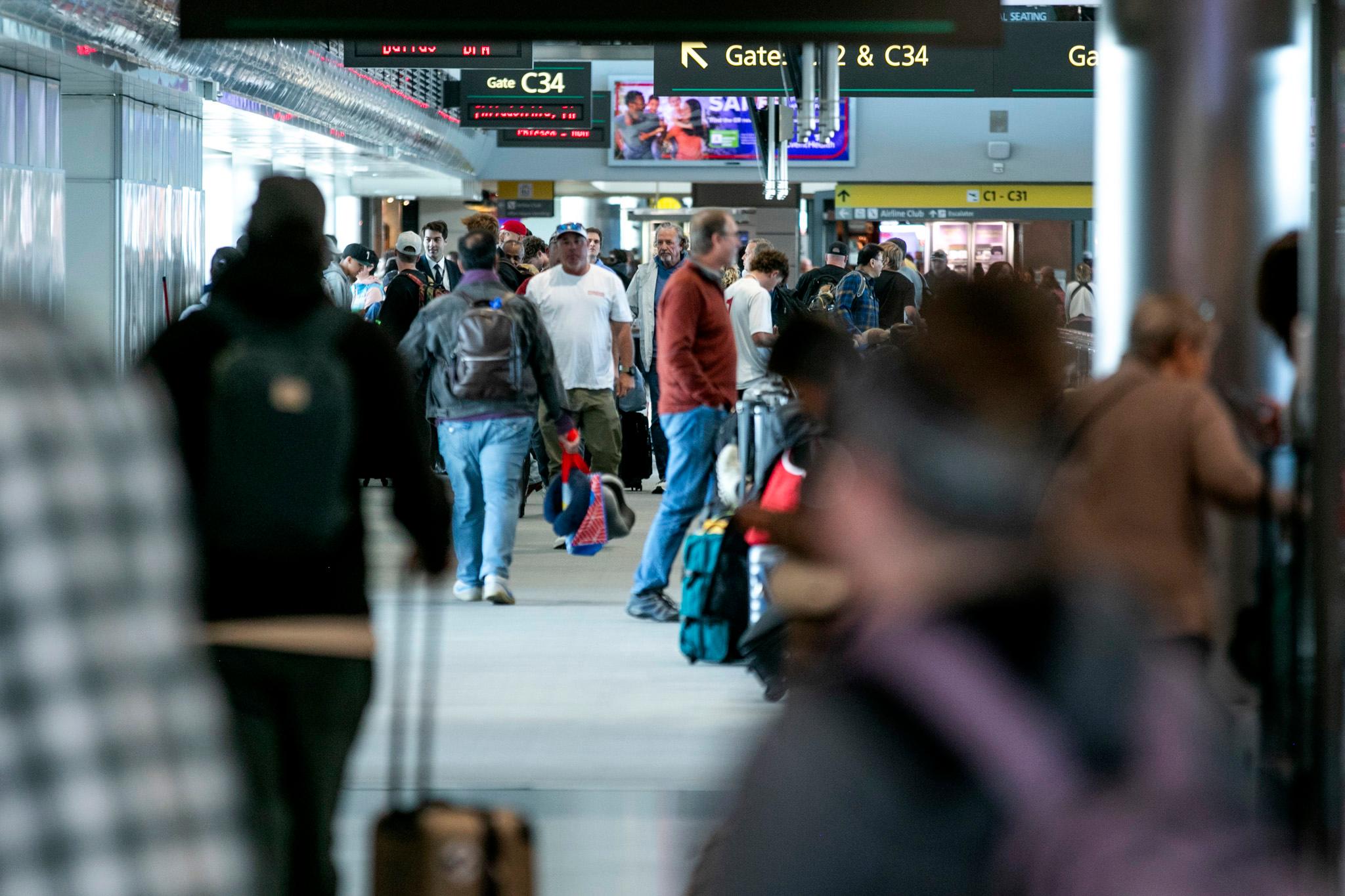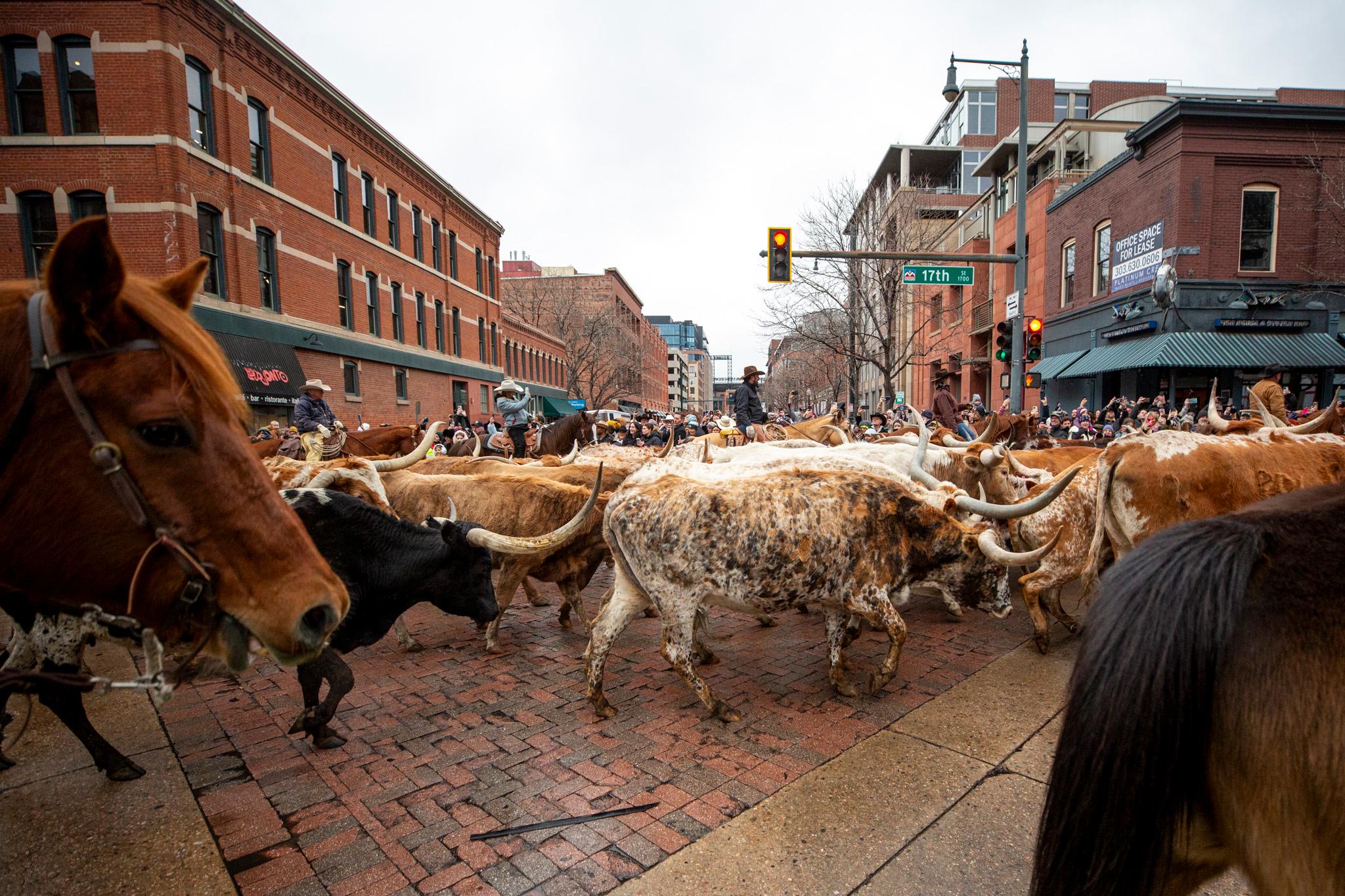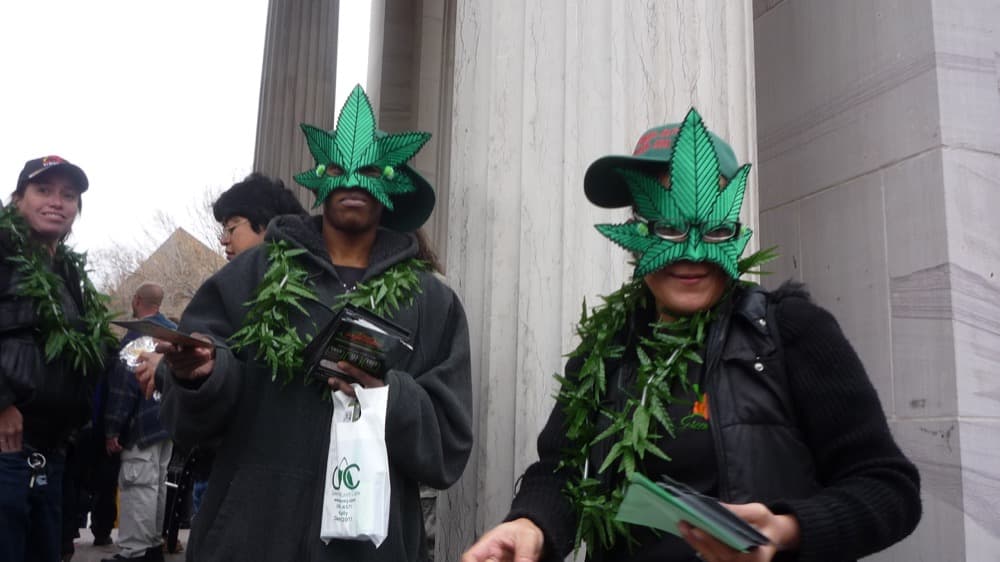
Denver's 4/20 rally used to have a political purpose. Out from the shadows for one day of the year, consumers lit up for the public to see, protesting state and federal rules banning marijuana use. Then in 2012, those rules changed. Voters passed Amendment 64 and turned marijuana policy from a mere movement to a full-fledged industry.
Legalization split the cannabis community's perception of Denver's big 4/20 event. Key people who in past years joined the rally in Civic Center Park are now involved in promoting the industry and have abandoned the annual event and even admonish its participants.
That's certainly the case for Jordan Person, who heads up the Denver chapter of the National Organization for the Reform of Marijuana Laws.
"Five years ago, it had a purpose," Person said. "It was all about fighting, and now it's all about civil disobedience. ... It doesn't look good on marijuana consumers."
Denver NORML is a part of a national group fighting to get marijuana legalized across the United States. The organization is fairly conservative — well, as conservative as a group advocating for a federally banned drug can be — in its approach to advancing marijuana policy. For example, instead of pushing for social cannabis consumption at bars, restaurants and other established businesses, NORML wanted Denver to OK private clubs, exclusively for cannabis consumers.
"We've discovered incremental politics is the best way to get things accomplished," Person said.
It's probably going to be a while before legislators consider making it legal to use openly in public. And work still needs to be done if advocates want to kill the criminal image of cannabis users perpetuated by law enforcement or the "stoner" perception that Hollywood helped make famous.
Is 4/20 making progress on those fronts?
"Yes, it's a celebration. Yes, it's a holiday for our culture. But what is it really about today?" Person said. "We want it to be about progress, not about civil disobedience."
4/20 in 2017
This year's 4/20 event featuring rapper 2 Chainz is being headed up by organizer Miguel Lopez.
"There have been some people trying to say I'm encouraging people to break the law," Lopez said. "They’re going to do it anyway. It’s the tradition."
Lopez called his event "a platform for people of color and classes affected by prohibition." Even after legalization, for him, the event is still about uniting for one day to promote marijuana and get informed about laws and threats that lie ahead.
It's hard to write off 4/20 altogether, said Emmet Reistroffer, who works as a marijuana consultant and helped pass Denver's Initiative 300, which will allow for the social consumption of marijuana in designated areas of existing businesses.
"There's a historical significance that I appreciate. And certainly, I support the civil rights of individuals, and I believe in the power of civil disobedience," Reistroffer said "But where I become concerned is when the event starts to bring in large-scale entertainment acts, like Lil Wayne and 2 Chainz, and how that reflects on our community as a whole because they're throwing an all-ages event, and there are a lot of children and high school students that attend. They're being exposed to a large amount of cannabis consumption."
Like Person, Reistroffer sees a long road ahead for changing the stigma around marijuana.
"Where some of us in the cannabis advocacy community differ is how we go about doing that," he said. "The behavior by consumers is still an important part about how we change the laws and try to overcome that stigma. ... On a local level, our relationships with neighborhood groups and community leaders are tarnished when cannabis users are irresponsible."
Why does the event go on?
Denver officials claim they can't stop the 4/20 Rally.
"It's not constitutionally permissible for the city to deny a permit or prohibit free expression based on whether we may or may not like the content of the speech," said Ashley Kilroy, executive director of Denver Excise and Licenses.
In some ways permitting the event gives the city more control than it would have otherwise. Through the permitting process city officials work with event organizers to make sure they set up enough portable bathrooms, have access to water, install fencing and hire security.
"If we didn't permit it, I'm pretty sure they would all be here anyway," Kilroy said. "This way at least they have to clean up after themselves."
Denver police did not return multiple inquiries about their policies surrounding 4/20. Last year, officers handed out 60 citations on April 20 and another 18 at the rescheduled rally the following Saturday, according to the Denver Post.
The world's watching
With hints of a pending federal crackdown on marijuana, Colorado's actions surrounding marijuana are especially important, said Kristi Kelly, executive director of the Marijuana Industry Group.
The Denver-based group is a voice for the industry that's already, by at least some counts, larger than the state's craft beer segment.
"Colorado has a great responsibility because there are so many people relying on us as an example," Kelly said. "Our successes become other people's successes and our failures become other people's failures."
Kelley said her group is not participating in the 4/20 Rally and declined to talk about the event directly.
"We’re asking people to follow the law, consume with an understanding of what is right and what is wrong and plan ahead," she said. "If they are consuming, plan ahead without getting behind the wheel."
"If you care about legalized cannabis having a long-standing place, not just in Colorado, but other places, behave accordingly."
Business & data reporter Adrian D. Garcia can be reached via email at [email protected] or twitter.com/adriandgarcia.



